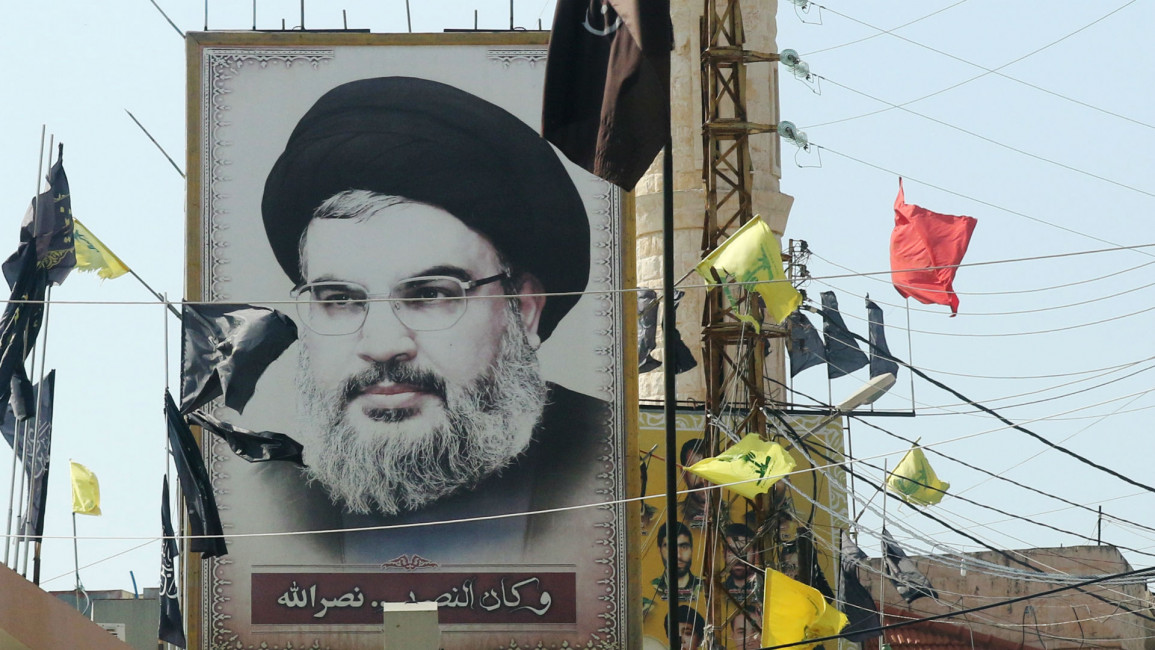Hizballah warns US peace plan could 'eliminate Palestinian cause'
The head of Lebanon's Shia movement Hizballah warned on Saturday that a long-delayed US peace plan could see Palestinian refugees permanently settled in host countries across the region.
Speaking days after the US announced a May conference in Bahrain to lay out economic aspects of its long-awaited Israeli-Palestinian peace plan, Hizballah chief Hassan Nasrallah warned of an "ominous deal aimed at eliminating the Palestinian cause".
He said the conference's focus on economic issues "may open the door wide open to the question of naturalising the Palestinian brothers in Lebanon and the countries where they are located".
The right of return for more than 700,000 refugees who were expelled or fled during the creation of the State of Israel in 1948 - and their millions of descendants - is a key pillar of the Palestinian cause.
The vast majority cling tightly to hopes, enshrined in a key UN Security Council resolution, of returning to lands their families once owned but which are now inside Israel.
An estimated 174,000 Palestinian refugees live in Lebanon, according to a census by national authorities in 2017.
The UN estimates there are tens of thousands more.
Twitter Post
|
Hizballah has long championed the Palestinian cause, but the Palestinian presence is controversial in Lebanon, where many blame them for causing the bitter civil war that ravaged the country between 1975 and 1990.
Lebanon's Palestinian camps suffer poverty, overcrowding, unemployment, poor and dangerous housing conditions and a lack of infrastructure.
Today, "it's not enough to say we're all against naturalisation - the danger of naturalisation is approaching," Nasrallah said during a televised address marking the 19th anniversary of Israel's withdrawal from southern Lebanon.
He called for an urgent meeting between government and Palestinian officials in Lebanon to "develop a plan to confront the danger".
The Palestinians have boycotted the US administration since December 2017, when Trump broke with decades of international consensus and recognised Jerusalem as Israel's capital.
Palestinians consider the eastern part of the city the capital of their future state, fear the US plan will be heavily biased in favour of Israel.
The Palestinian leadership has said it will boycott the June 25-26 meeting in Manama, where the declared aim is to promote Palestinian prosperity as part of Trump's "deal of the century".
The Trump administration is expected to unveil its long-awaited plan possibly as early as next month.
The Bahrain conference could see large-scale investment pledges for the Palestinian territories but is unlikely to focus heavily on the political issues at the core of the conflict, such as the question of Palestinian refugees, Jerusalem, illegal settlements or borders.


![President Pezeshkian has denounced Israel's attacks on Lebanon [Getty]](/sites/default/files/styles/image_684x385/public/2173482924.jpeg?h=a5f2f23a&itok=q3evVtko)



 Follow the Middle East's top stories in English at The New Arab on Google News
Follow the Middle East's top stories in English at The New Arab on Google News


